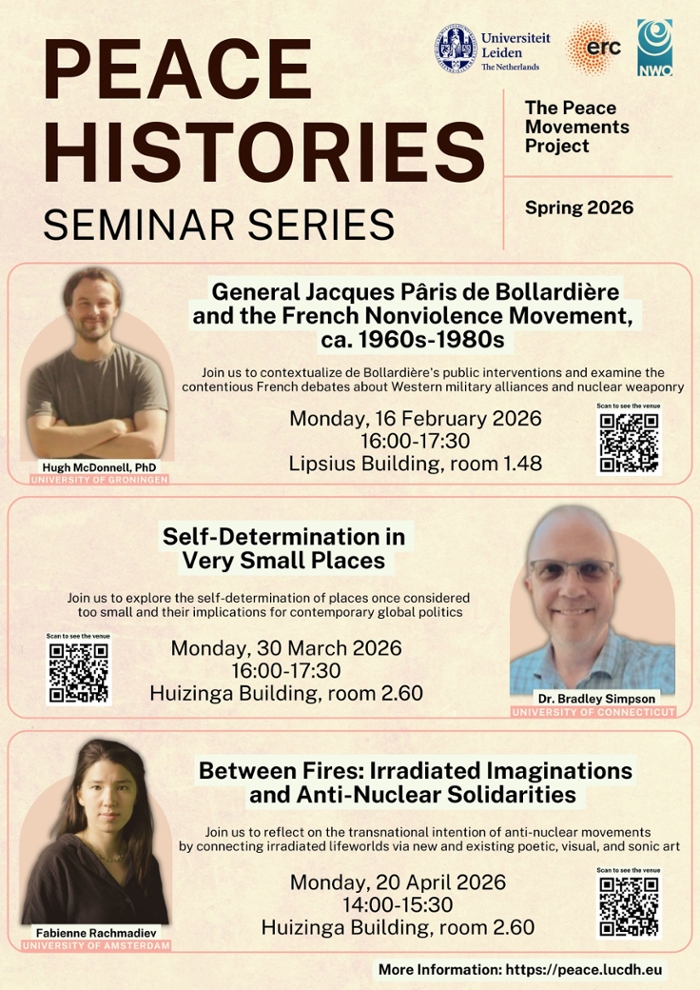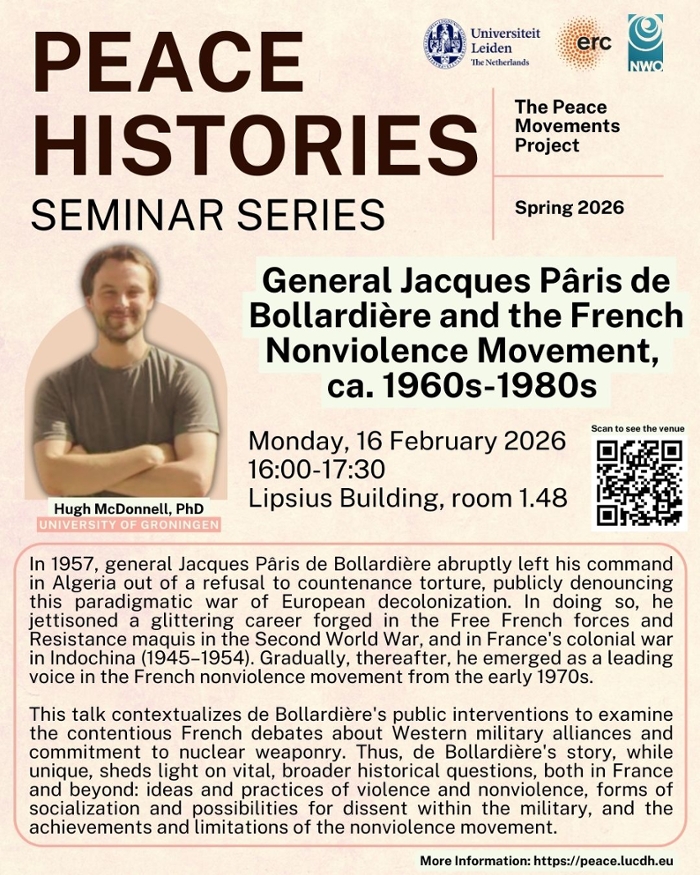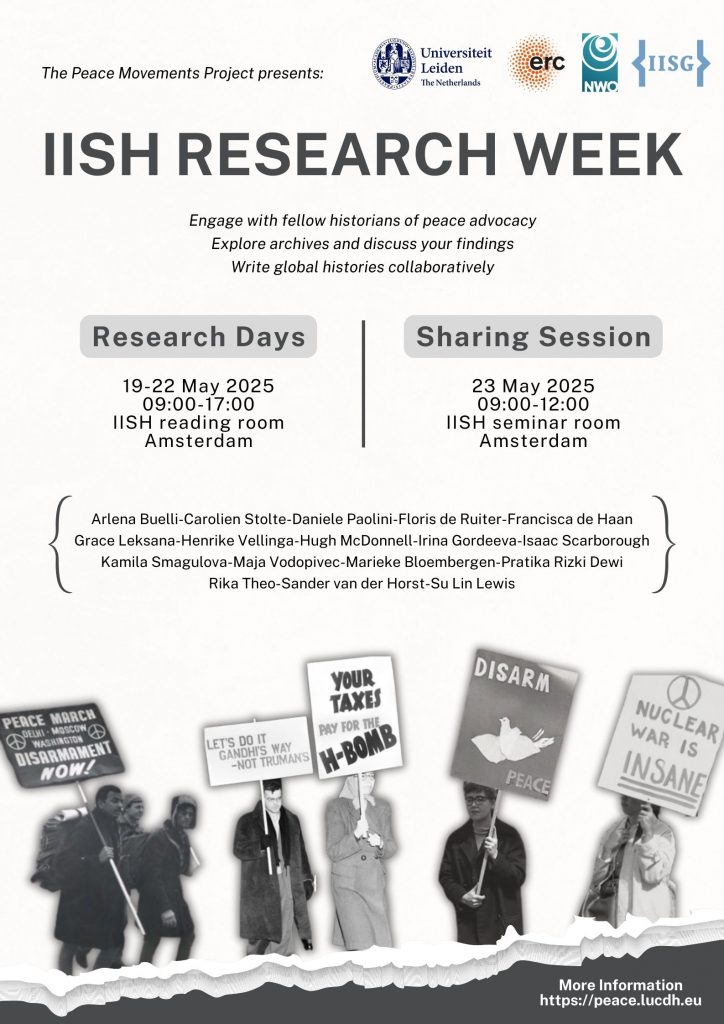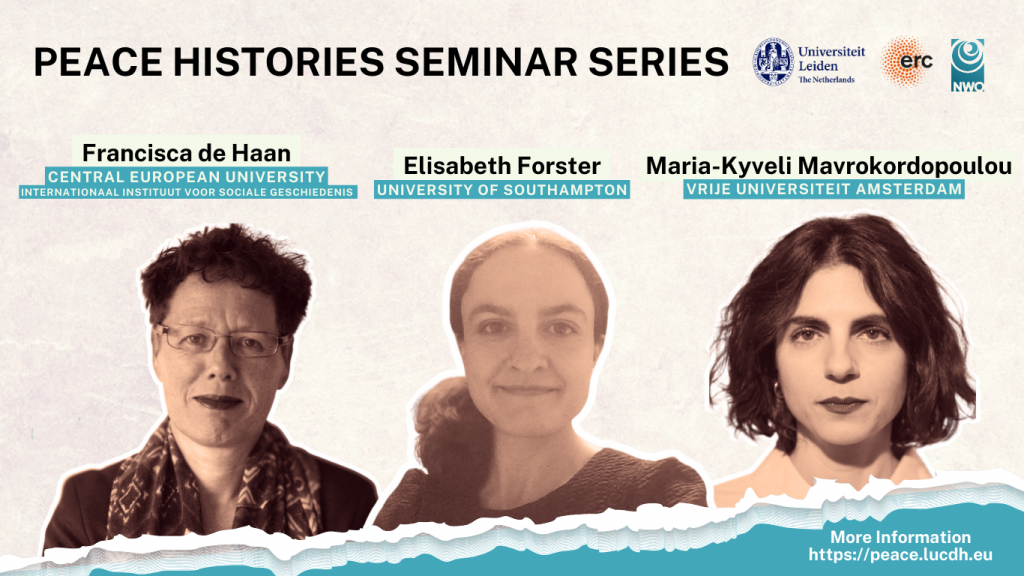The Peace Movements project proudly presents the Peace Histories Seminar Series! This series of talks provides a space for students and faculty to discuss how different actors, organisations, powers, and regions perceive peace. We invite speakers to present frontline research on a specific historiography of peace, after which the floor is opened for discussion. All events are held at the Humanities Faculty in Leiden and open to the public. Join us!
Spring Semester Schedule

All Peace Histories seminars are held at the Humanities Faculty at Leiden University, unless otherwise stated. All are welcome – if you are not affiliated with the university, please reach out so that we can share details on how to attend.
First up
Hugh McDonnell of the University of Groningen will join us on February 16 to talk about his upcoming book The End of Violence: France and the Single Struggle of Jacques de Bollardière (Cornell University Press, 2026).

Our most recent event

Aditya Kiran Kakati joined us last December to critically introduce the anti-war movie Aman (1967). Thanks to all who came and for the lively discussion following the film!
Past Events
On 6 October, dr. Julia Hauser of the University of Kassel joined us to talk about questions of violence and non-violence in the history of vegetarianism.
On 9 September, dr. Becky Alexis-Martin of the University of Bradford gave the first talk of the Fall semester, entitled “Building Epistemic Justice After Nuclear Weapons Testing: the Case of Kirimati”.
During the week of 19-23 May, we headed into the IISH Archives with an international group of researchers for some real-time global history collaboration! Our program for the week, along with a list of participants, can be found here.

Peace Histories Seminar, Spring Semester 2024-2025

On Monday, May 12, 2025 Maria-Kyveli Mavrokordopoulou (VU University Amsterdam) gave the final talk of the Spring semester, entitled “Keeping the Nukes out, from Hawaii to Malta: 1980s antinuclear feminisms, in and through art.”
On Monday, April 7, 2025, Elisabeth Foster compared different peace discourses in China in her talk entitled: “A Just War versus a Dignified Peace? Discourses about War and Peace in the Peace Negotiations between the Chinese Communist Party and Nationalist Party in 1949”.
On Tuesday, March 6, 2025, we screened The War Game, a 1966 British pseudo-documentary that explores the aftermath of a nuclear war in Britain. It was made for the BBC but by the time it was finished, the film was seen as so controversial that it was withdrawn before the screening date. It did win an Oscar for the Best Documentary Feature in 1967 but was not televised in Britain until 1985.
On Monday, February 24, 2025, Francisca de Haan kicked off our Spring 2025 series with a talk on the World Women’s Committee Against War and Fascism in the years leading up to the Second World War.
On Thursday, October 7 2024, Pedro Aires Oliveira gave a talk on anti-war protests, transnational solidarity and the liberation of Portuguese-speaking Africa, c. 1961-1974.